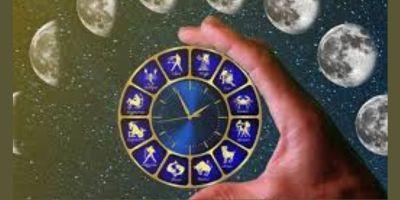5 things to know about Vedic astrology

Vedic astrology is an ancient Indian science that explains the movements of the planets and their positions with respect to time. Their effect on humans and other entities on Earth. Vedic astrology can be trace back thousands of years.
5 Things You Should Know About Vedic Astrology
1) The beginnings of Vedic astrology
Rooted in the Vedas, the ancient Indian system of knowledge. Vedic astrology is based on the belief that the stars and planets have a powerful influence on our lives.
According to Hindu teachings, life is meant for spiritual growth. This growth is facilitated in part by karma, the concept that every thought and action has a corresponding reaction.
The Vedas say that a person's karma is directly related to the position of the planets and stars, and therefore astrology is a method to understand a person's karma by analyzing these positions.
Originally known as Jyotish or "science of light", Vedic astrology is consider by many to be the eye of the Vedas as it is meant to provide guidance to individuals who feel lost or confuse on their life's journey.
Astrology, also called the "science of destiny," is use to understand all aspects of life. Including the future success of a particular endeavour such as marriage, moving to a new home, or starting a business. In the past, it was even use as a way of predicting the outcome of battles in a war or a specific government decision. As a result, rulers often employed astrologers to give them better insight into how they could best run their kingdoms.
2) Eastern vs. Western Method of Astrology
First of all, it should be know that the "Daily Horoscope" section. Which is usually found on the Internet and in newspapers, has nothing to do with Vedic astrology.
Not only do these sections adhere to Western astrological interpretations that differ from the Vedic system. But they also pay attention to only one small aspect of its practice, making vague and generalize predictions.
The main difference between Vedic and Western astrologers is how they look at the constellations.
The sun and planets, as seen from Earth, follow a path across the sky, moving against the backdrop of constellations or star patterns that form different astrological signs such as Taurus, Aries, Pisces, etc. When the sun or a particular planet moves in front of a certain star pattern, it is say , that it is in the astrological sign that the stars represent. So the ecliptic path that the planets pass in front of the twelve astrology signs is called the zodiac.
About 2,000 years ago, both Western and Vedic astrology tracked the planets along this ecliptic path to create horoscopes and make predictions.
But as the Earth spins on its axis, it actually experiences a wobble, known as precession. This wobble tilts the Earth and also tilts its ecliptic plane. Since a complete wobble takes 26,000 years, the plane of the ecliptic moves about 1 degree every 72 years.
The plane of the ecliptic has shift so much in the last 2000 years that the position of the Sun and the planets in relation to the signs no longer correspond to the position of the old plane of the ecliptic.
Vedic astrology takes precession into account and therefore calculates horoscopes based on the updated ecliptic path. However, Western astrology follows an old symbolic path rather than an astronomically accurate path.
3) How the planets affect us
As described in the Vedas, everyone and everything is under the control of time.
By its influence, individuals are inevitably draw through various stages of existence before finally dying and being push into the next life. The state of which is determine by their accumulate karma.
According to modern science, time and space are connected to form the structure in which we exist, know as space-time. Large objects such as planets affect this fabric and affect everything around them.
In "The Astrology of the Seers" David Frawley says:
"What we call planets are nothing more than points of light in a vast energy network, connect by intricately subtle lines of force, uniting the entire solar system into a single organism. Although the planets appear as small points of light in the distance. Their energy fields are present on Earth and are responsible for many of the formations of earthly life and our own bodies and minds.
But, as life unfolds in the field of time, the planets are like referees, keeping order.
4) Fate or Intuitions
According to the Vedas, our future is determine by two things: destiny and free will.
Fate refers to the various situations we encounter in life. While a free will is how we respond to them through thought and action. How we react creates additional karma, which then determines the future set of situations we are destine to face. In other words, our destiny is create by our free will.
The Vedas recognize the four goals of human life, dharma, artha, kama and moksha.
Basically, Dharma can be define as the way of behavior that contributes most to the spiritual growth of a person. Fulfilling dharma brings meaning, purpose and honor to one's life.
Kama literally translates as "desire" and refers to the need for sensual and emotional happiness. All beings seek happiness in some way and should pursue such happiness without harming themselves or others.
Artha, although translated as "aim" or "purpose", is more specifically related to the acquisition of wealth or a sense of security. In order to experience happiness from achieving one's goals, one must have the necessary sources of wealth to achieve them.
The ultimate goal, moksha, means "liberation" and refers to the spiritual development of people. Until their eventual liberation from the cycle of birth and death.
Vedic astrology is a map of our karma. It allows us to more accurately understand our own nature and destiny. So that we can navigate our lives in fulfilling these four goals. But ultimately it is to help us in our spiritual development to reach the ultimate goal of moksha. By studying our horoscopes we can better understand what energies are affecting us and how best to respond to those energies, often using spiritual practices such as chanting or ritual worship to help us in our spiritual growth.
5) Experience & Qualification of Vedic Astrologer
In a world full of psychics and fortune tellers, it is important to remember that the techniques of Vedic astrology require many years of academic study and training.
The best astrologers are those who have actually developed their skills over a lifetime. Even then, its practice is so subtle and profound that complete mastery is almost impossible.
Beyond the technical aspects, Vedic astrology is ultimately a spiritual science and therefore requires a certain level of intuition that is generally only present in those who adhere to certain standards of spiritual practice. In order for an astrologer to be able to read horoscopes and then give advice on how best to approach life's obstacles from a spiritual perspective, an astrologer should live a life in which a strong standard of spiritual discipline is maintained.
In fact, the astrologers of ancient India were consider to be great sages who were honest, humble, noble, independent and treated everyone equally. Their main purpose was to help guide individuals on the path of spirituality.
Although much harder to find these days, there are still astrologers who maintain a similar standard of spiritual integrity.
For those feeling particularly lost or going through a difficult time, such astrologers can provide the vision necessary to see life's obstacles, not as sources of depression.






